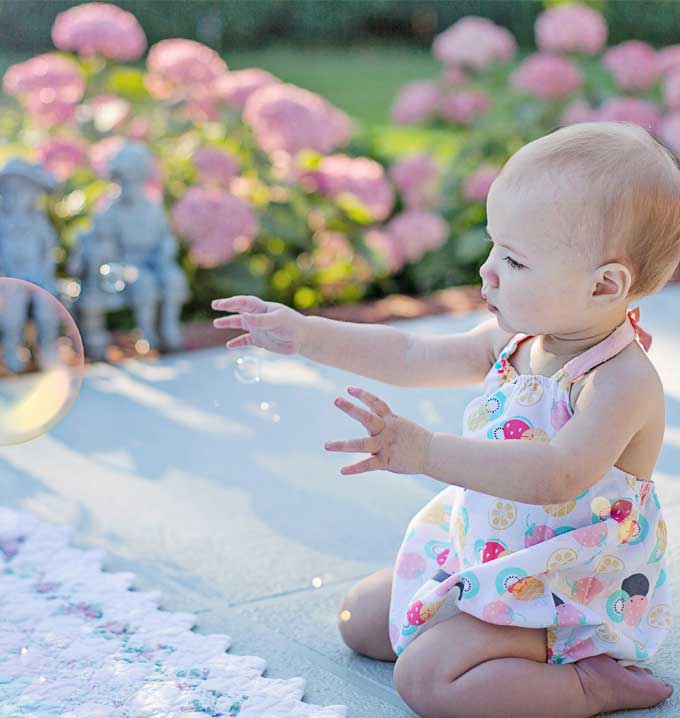Autism & Routine Changes: Summer Routines – Lighthouse Autism Center
Summer brings a break from the rigors of school, but for children with autism spectrum disorder (ASD), the change in routine can be challenging. The structure provided by school can be comforting and stabilizing, and disrupting that routine during the summer months may lead to anxiety or difficulties adjusting. However, with careful planning and consideration, you can create a summer routine that supports your child’s needs while also allowing for fun and relaxation. Below are some tips for keeping a summer routine for a child with autism.

Tips for Keeping a Summer Routine for an Autistic Child
For many children, summer vacation means a break from school and its strict schedules. However, not all children will be excited about that. A change in daily routine can be a source of great stress for autistic individuals and their caregivers. Structure and routine provide a sense of predictability and security that can alleviate stress caused by the unknown and lessen the cognitive load required to navigate daily life. As such, autistic children often exhibit a strong attachment to their daily rituals and schedule, making autism and change of routine challenging to manage for both caregiver and child.
Top Summer Routine Tips
Establish a Visual Schedule
Visual schedules are invaluable tools for children with autism as they provide predictability and clarity about what to expect throughout the day as well as help manage transitions between activities, providing clear cues and timeframes. As such, you’ll want to create an anticipatory schedule (basically a laundry list) of each day’s events.
Visual schedules for individuals with autism are particularly helpful in mitigating the stress of the unknown by providing a clear and consistent visual cue about what will happen and in what sequence. By using pictures, symbols, or written cues, these visual supports for those with autism can help your child understand and anticipate upcoming transitions, reducing anxiety and increasing their capacity to cope with changes in their routine.
Utilize Cues
Some children respond better to auditory cues than visual ones, so incorporating sound-based cues into their daily schedules can be highly effective. Unlike visual prompts, auditory signals such as timers or alarms can cut through the noise of other activities, providing a clear and distinct indication that a transition is approaching.
Prepare for Transitions
Transitions between activities or environments can be challenging for children with autism. Prepare your child for transitions by using visual timers, countdowns, or transition cues to signal upcoming changes. Provide warnings and reminders before transitions occur to help your child prepare mentally for the change.
Maintain Consistency
Maintain consistency to help manage a routine. While some flexibility is necessary during the summer months, try to maintain consistency in certain aspects of your child’s routine, such as waking up and going to bed at consistent times, mealtimes, and therapy sessions. Consistency helps provide a sense of stability and security for children with autism.
Allow Downtime
It’s important to balance structured activities with downtime to prevent overwhelm and fatigue. Create quiet spaces in your home where your child can retreat when they need a break from stimulation. Encourage activities that promote relaxation, such as reading, listening to music, or practicing deep breathing exercises.
Plan Outdoor Activities for Autistic Kids
Summer camps can be an enriching experience, offering structured environments with outdoor activities for autistic children. This will give your child the opportunity to learn new skills and build social connections within a supportive setting. The immersive nature of summer camps provides repetitive scheduling, which can promote a sense of security and predictability.
Encourage Socialization
Summer is an excellent time to facilitate social opportunities for your child with autism. Arrange playdates with peers who understand and accept your child’s unique needs. Consider joining support groups or community events where your child can interact with other children and families in a safe and inclusive environment.
Incorporate Sensory Activities
Many children with autism have sensory sensitivities or seek sensory input. Incorporate sensory activities into your child’s summer routine, such as swimming, playing in a sensory bin filled with rice or sand, or engaging in activities that provide proprioceptive input like jumping on a trampoline or swinging. These activities can help regulate sensory processing and promote relaxation.
Planning a Structured Autism Summer Program While Staying Flexible
Structure your child’s day with a mix of structured and unstructured activities. Structured activities can include arts and crafts, puzzles, board games, and educational activities tailored to your child’s interests and abilities. Consider enrolling your child in summer camps or programs specifically designed for children with autism, where they can engage in structured activities in a supportive environment.
While routines are beneficial for children with autism, it’s essential to remain flexible and adaptable. Be open to making adjustments to your child’s summer routine based on their changing needs, interests, and preferences. Flexibility allows you to accommodate unexpected events or opportunities while maintaining a sense of structure and predictability.
In conclusion, creating a summer routine for a child with autism requires careful planning, consideration, and flexibility. By establishing a structured yet flexible routine, incorporating sensory activities, maintaining consistency, and allowing for socialization and downtime, you can help support your child’s well-being and enjoyment during the summer months. Remember to celebrate small victories and cherish the special moments shared with your child as you navigate the summer together.
If you need professional assistance in designing and implementing a summer vacation schedule, chat with our experts at Lighthouse Autism Center. Our innovative program, Lighthouse Fusion ABA Therapy, helps autistic children develop the skills they need to adapt to changing environments.
Discover more helpful autism resources and tools for parents.
Together, we can unlock your child’s potential
Related News

01/15/2026
10 Simple Self-Care Habits for Autism Caregivers
Caring for a child with autism is rewarding, but can also be demanding in ways that aren’t always visible. Between daily routines, therapy schedules, advocacy, and emotional labor, many caregivers find themselves running on empty, even as they continue to show up for their child every day. Earlier this year, we explored this reality in our blog post, The Power of Pause: Why Caregiver Self-Care […]

01/05/2026
The Power of Pause: Why Caregiver Self-Care Matters
As a new year begins, many families naturally reflect on what they hope the months ahead will bring—more peace, more balance, more support. At Lighthouse Autism Center, we’ll be taking a deeper look at the importance of self-care throughout the month of January, offering resources and encouragement to help caregivers start the year feeling supported and grounded. But […]

11/18/2025
Tips for Picky Eaters and Introducing New Foods
Autistic children are often labeled as picky eaters, but the truth is that they face a unique set of challenges that can make mealtimes extremely stressful. Discover helpful tips on introducing new foods into your child’s diet to make mealtimes more nutritional and enjoyable for everyone at the table. Autism and Food: Tips for Introducing […]


